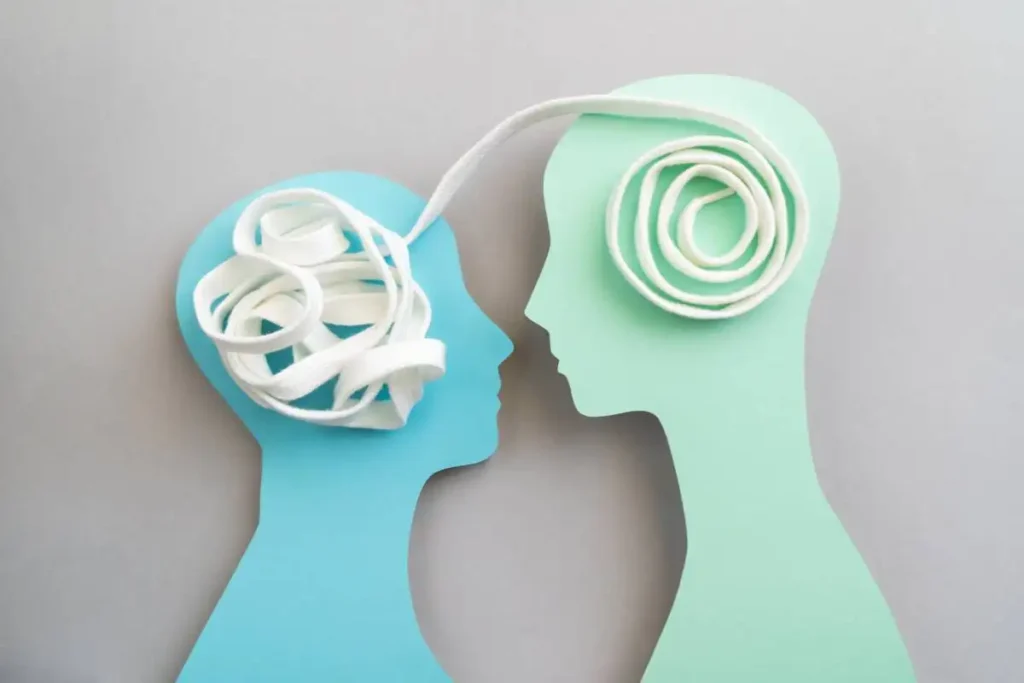Romantic relationships can be challenging for anyone, but for individuals with autism spectrum disorder (ASD), the challenges can be unique and complex. Communication and emotional connectivity are two key areas that can be impacted by autism in romantic relationships.
Communication Challenges
Communication can be a significant challenge for individuals with autism, and this can impact their ability to form and maintain romantic relationships. People with autism may struggle with verbal and nonverbal communication, including understanding social cues, interpreting tone of voice, and making eye contact. These challenges can make it difficult for individuals with autism to express their feelings and needs and can also make it difficult for their partners to understand them.
One way to address communication challenges is to use clear and direct communication. This can involve using concrete language, avoiding sarcasm and figurative language, and being explicit about feelings and needs. It can also be helpful to establish routines and schedules to help reduce anxiety and uncertainty in communication.
Emotional Connectivity
Emotional connectivity is another area that can be impacted by autism in romantic relationships. People with autism may struggle to understand and express emotions, which can make it challenging to connect with their partners emotionally. They may also struggle with empathy, which can make it challenging to understand their partner’s perspective and respond appropriately.
One way to address emotional connectivity challenges is to work on building emotional intelligence. This can involve learning to identify and label emotions, practicing empathy and perspective-taking, and developing effective coping strategies for managing emotions. It can also be helpful to establish clear boundaries and expectations in the relationship to help reduce anxiety and uncertainty.
Autism and Family Dynamics

Families with a member who has autism may experience unique challenges in their relationships. With the proper support and understanding, they can also develop strong bonds and positive interactions. This section will explore how autism affects family dynamics, specifically parent-child interactions and sibling relationships.
Parent-Child Interactions
Parents of children with autism may need to adjust their communication styles to better understand their child’s needs. They may also need to learn new ways to communicate with their children, such as using visual aids or breaking down instructions into smaller steps. Parents may also need to modify their expectations and routines to accommodate their child’s unique needs.
It is also essential for parents to seek support and take care of their own emotional and mental well-being. Caring for a child with autism can be stressful and overwhelming, and parents may benefit from therapy, support groups, or respite care.
Sibling Relationships
Having a sibling with autism can also impact family dynamics. Siblings may feel neglected or resentful of the attention given to their autistic sibling. On the other hand, they may also develop a strong bond with their sibling and become more compassionate and understanding individuals.
Siblings of children with autism may experience a range of emotions, including guilt, frustration, and jealousy. Parents need to acknowledge and address these emotions and provide support for their other children.
Parents can also encourage positive interactions between siblings by involving them in their autistic sibling’s therapy sessions or activities. This can help siblings better understand their brother or sister’s needs and develop a stronger bond.
Friendships and Social Circles

Autistic individuals may face challenges in making and maintaining friendships, but they can develop and maintain meaningful relationships with others. According to a study by the National Autistic Society, autistic individuals may find it easier to make friends with people who share their interests or hobbies. Having shared interests can provide a basis for conversation and connection.
Autistic individuals may have different social needs and preferences. Some may prefer to have a few close friends, while others may prefer a larger social circle. Autistic individuals may also have a different approach to socializing, such as a preference for structured activities or one-on-one interactions.
To maintain friendships, autistic individuals may benefit from clear communication and explicit social cues. For example, they may need to be told directly if a friend is upset or if plans have changed. Autistic individuals may also benefit from having a consistent routine and clear expectations for social interactions.
Social Integration Challenges
Autistic individuals may face challenges with social integration, which can make it difficult for them to feel connected to their community. They may struggle with social cues and nonverbal communication, which can make it difficult to understand social norms and expectations. This can lead to feelings of social isolation and loneliness.
There are ways for autistic individuals to become more integrated into their community. They may benefit from participating in structured activities or groups that align with their interests. For example, an autistic individual who enjoys art may benefit from joining an art club or attending art classes. This can provide a basis for social interaction and connection with others who share their interests.
It is also essential for autistic individuals to have access to resources and support that can help them navigate social situations. This can include therapy or counseling, social skills training, and support groups. By having access to these resources, autistic individuals can develop the skills and confidence needed to form and maintain meaningful relationships with others.







